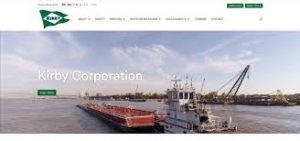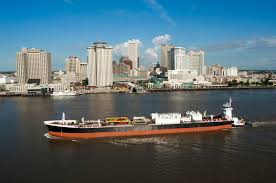
“It’s very, very painful,” Grzebinski said. “Could we do more, would we do more? We think we’ve got it about right.”

Kirby runs a fleet of tank barges that ship liquids along the coast and inland U.S., and it also manufactures equipment for a number of industrial uses, including the oil and gas industry. Many businesses that provide services to upstream energy companies are facing strain from reduced activity levels in the sector, and Kirby is no exception. The company’s oil and gas customers have curtailed their operations, which cuts demand for the services Kirby offers, Grzebinski said.
That’s what led to the workforce reductions as Kirby attempted to rightsize the business segment to match demand. But Grzebinski said the market is going to recover at some point, and he doesn’t want to cut so deeply that the company can’t respond when it eventually does.
Despite that, the company will have to make further cuts if things don’t improve, and activity in 2020 looks the same as it did in the fourth quarter, Grzebinski said.
Kirby acquired a fleet of barges from Savage Inland Marine, part of Utah-based Savage, for $278 million, according to the company’s fourth-quarter and full-year 2019 earnings release. The new assets are expected to contribute a little more than $100 million to the company’s revenue. Kirby is financing the deal by drawing upon its existing revolving credit.
The Savage deal is set to close before the end of the first quarter.
Kirby produced $2.84 billion in 2019 revenue, according to the earnings press release. That’s down from $2.97 billion in 2018.
Source: Houston Business Journal



